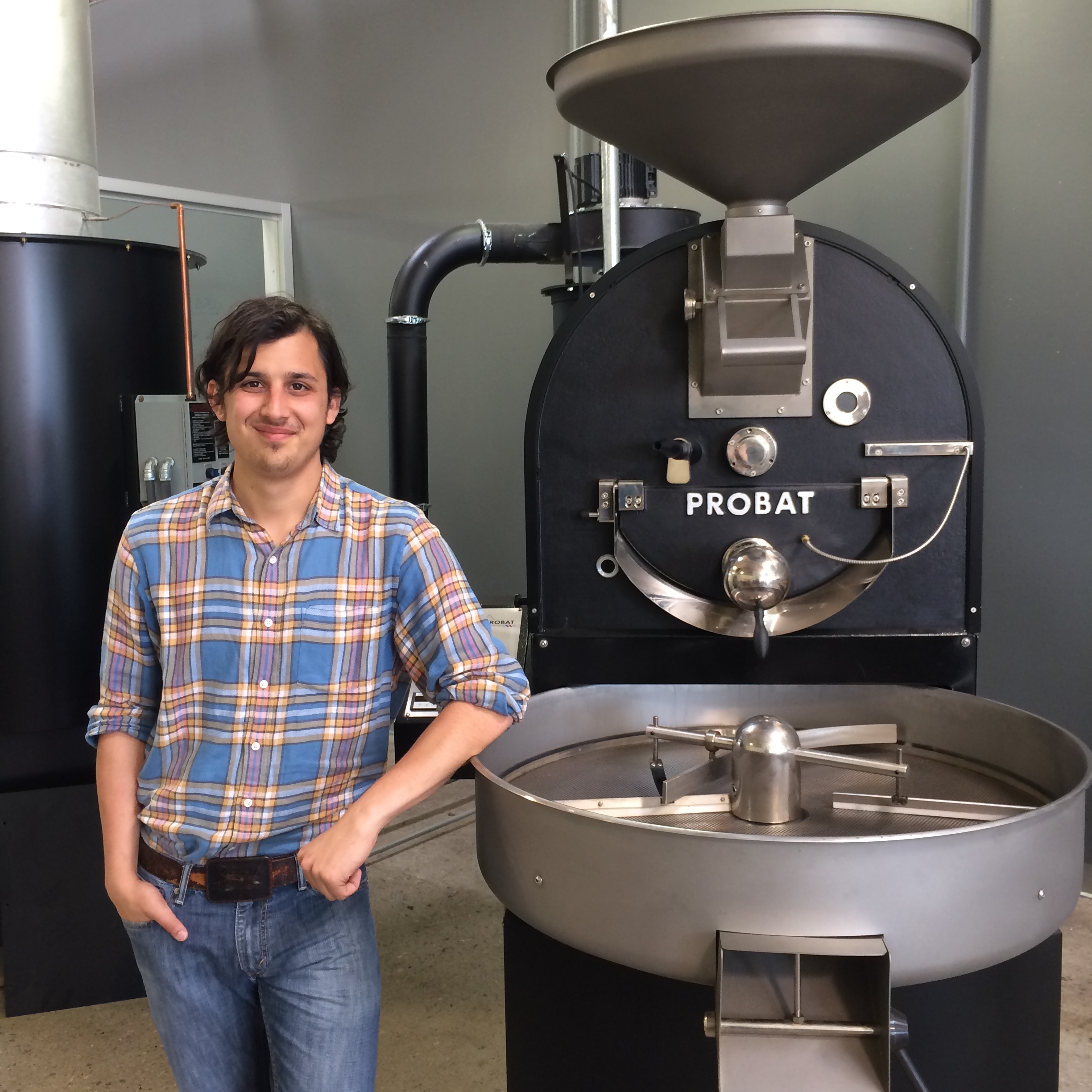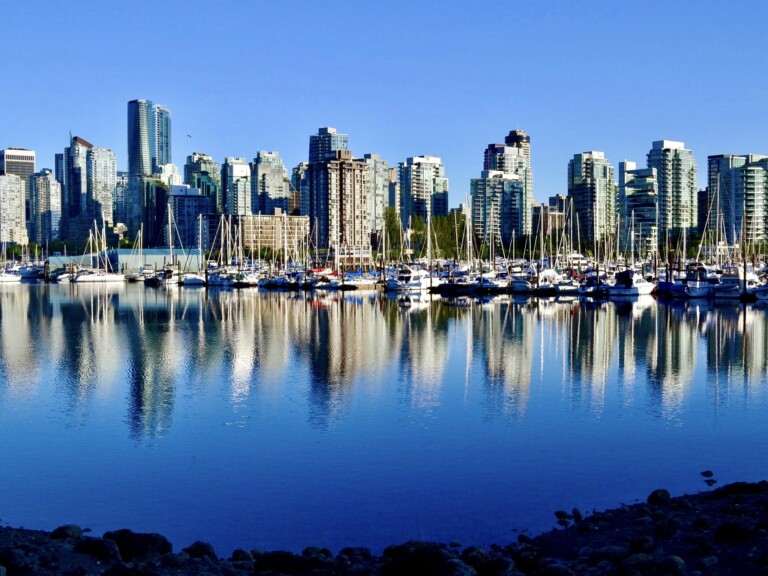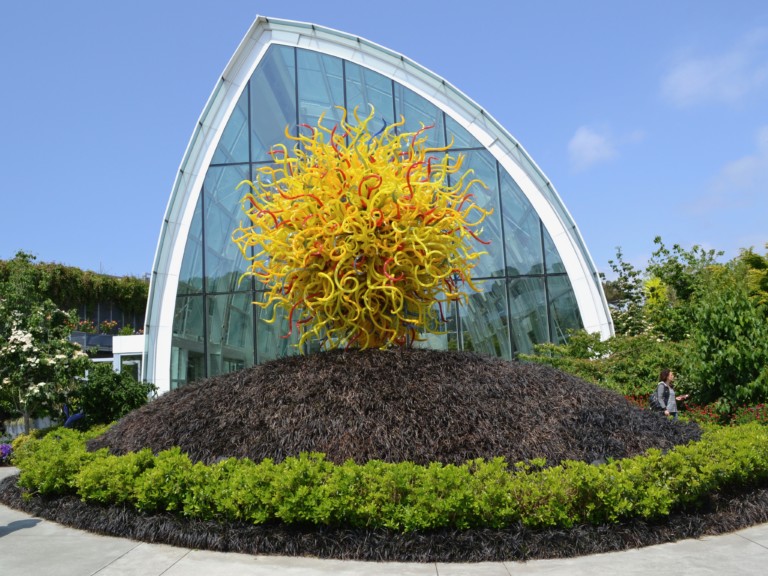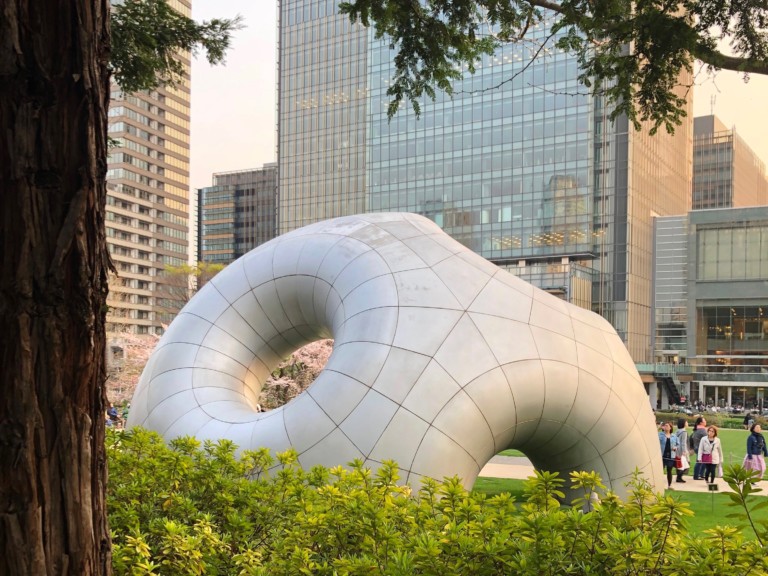GUIDE CONTINUED FROM PREVIOUS PAGE
What does a coffee have to be for you to roast it and serve it, at Bar Nine?
ZN: Most of the time, it has to be something that initially A. excites us, and B. surprises us. There’s a lot of really lovely coffee that’s just tasty—that’s awesome, and a lot of people serve coffee like that. Like we had a coffee that we don’t have anymore that’s out of season, but it was from Columbia and it was incredibly floral, which is not really what you’d expect from a Colombian coffee, and we tasted it and we thought oh, that’s probably an Ethiopian, or an African coffee of some kind—we do all of our cupping blind when we’re tasting new coffees—and then we realized wow, that’s a Colombian, that’s really surprising and intriguing, and those are coffees we like to explore. Coffees that we can spend some time with. We do generally like very clean and sweet coffees. At the end of the day, we also like to get out of the way, when it comes to both how we roast and how we extract the coffee. Coffee has such an incredible variety of flavor from bean to bean, that to impart our style on it seems criminal. So we roast it lighter than a lot of people do. Los Angeles has become much more accustomed to people carrying roasters that are roasting lighter, which is nice, because that wasn’t the case a couple years ago. But yeah, that’s definitely a big factor for us is to just let the coffee speak for itself. I’d rather have a coffee menu that has three coffees, but they’re all amazing, and unique in their own special wonderful way, than have seven coffees that have a little something for everyone but we’re not inspired by. If we’re not inspired by something, it’s not on our menu.
How did you decide on the brewing methods that you went with?
ZN: The first thing that I knew I wanted to do was create a scenario where the brewing was as low profile as possible. That was the first goal, beyond whether that meant you know Chemex or Fetco or whatever, we wanted to do something that didn’t get in the way of service. So we looked at a lot of low profile espresso machines, and then Modbar was announced literally at the same time that we found this space in Culver City, and it just kind of checked off every box in terms of visual aesthetic. So we were super intrigued, but then when we learned a lot more of its functionality with automated pour-overs and volumetrics, we knew that was exactly the road that we wanted to go down, areas where we could focus a lot more in the morning on dialing in and then later on in the day be able to just serve great coffee every time, maintain eye contact and keep good conversation. With the pour-over module, you know, we didn’t know which pour-over brewer we’d end up using, so we just tasted a lot of our coffees brewed with many different devices, and for my money, the Chemex just won out every time, which kind of surprised me because it’s kind of the old classic, the standby, and it’s not the hip sexy brewer right now, but with this brewer, and with our coffee, it’s the tastiest thing for this bar. In future projects that we try to do as well, it’s probably going to be a completely different setup. Its about what’s right for that location. So everything just felt really right.
You talked about how important environment was. What was it about this location and this space and this environment that appealed to you?
ZN: First of all, finding a building where we can roast coffee is very hard because of the way zoning works, and how willing your landlord is for you to install kind of a crazy vent system. So we wanted it to be more industrial than probably other projects that we do. That was probably the first thing, and to be able to have a space that we could also sell coffee out of, and have a retail bar, have enough space so that we could do all of our office work, all of our shipping and storage, and be able to have a space where the community could get together, and finding a space that checked off all those boxes felt impossible for a while. I stumbled upon this place on Craigslist, and visually speaking it spoke to me right away, and I thought that just looks right. So we came in and the rest of everything we needed, from gas to water was already ready for us, we just had to kind of hook up and build up the bar.
What about from a design perspective?
ZN: I’m not a designer and don’t pretend to be, but we didn’t have anybody designing for us, it was all us. I like materials and things that are tangible and textural, that was just easier for me to put together than try to create a space that was a little more polished. In terms of layout, being in the food service industry for a while now, I had very strong ideas about where certain things should be taking place. When our guests walk in, they are greeted by somebody. That’s the first thing that’s important. I wanted to keep it really open so that you can see everything, from our lab in the back to the roasting and the production side, which is right on the main floor. I wanted there to be a lot to look at, while still keeping a more simple and minimalistic aesthetic. I like simplicity and we try to put simplicity in everything we do, and that’s kind of one of the biggest battles. It’s really easy to make business complex, even just in the operations that people don’t see. That’s kind of an every day battle: how do we simplify this, how do we make this more streamlined. The other thing for me, I didn’t want to see the nuts and bolts that aren’t interesting. Because everything is transparent, and that’s important, but if you see stacks of cups that are in a storage area, that just looks bad, doesn’t look very good. I want to create a space where the coffee just kind of magically happens, and the guests get to enjoy that, and don’t have to focus on, how do they run this place? It’s more of, wow, I can get great coffee, and it can just happen. And we can do all the work on our end, and the end user, our guest, just gets to reap the benefits.
What was important when building out the food program for Bar Nine? Who did you end up getting to do that?
ZN: Food is something we’re really stoked about. The initial thought was okay, it has to pair with the coffee that we serve. So that immediately cut out a lot of things, including things that are very sweet, because things like salt and herbs and spices bring out sweetness in coffee, and those pair better together. So that forced us into kind of a more rustic category of food. From there we did a lot of developing in house between myself and the two people who are kind of running the food program. We have Kalen Hermanson who is the main kitchen director, she’s been around town at places like Teuscher Chocolates and Short Cake, a great talent, just intuitively understands what it is we want to do, and she has a lot of free rein to do that. The other person who’s kind of the assist there, since he’s also kind of an all-around barista as well is Hugo Cano, who’s awesome. In addition to being here full time he also runs some restaurants and he’s just got his fingers in a lot of pies and is just one of those people that you just want to have around. Between the two of them I couldn’t be more confident in the food that they’re doing. So it expanded from simple baked goods to some savory morning fare, like fritata and some sweet and savory toasts, baked oatmeal, things that are more developed. We’re not a food business but we want to do food really well. And I think more coffee places are getting hip to that finally, because there was a while where it was just like yeah, we just serve coffee. That’s fine, but I think there’s a lot more, there’s a greater variety of people that we can bring through our door if we have a nice food program.
Building on that, we want to have a lot of pop-up food things happening here. So people coming in to do their own lunch service out of our kitchen. And that can rotate so every four months or so we can have somebody come in and do their menu. That’ll be like a Monday through Friday thing. And we’ll have interesting pop-up dinners and have chefs come in and basically have the kitchen be their canvas. And that excites me, it excites me to be able to bring in people who are trying to do cool things, maybe that’s food, maybe those are local producers who are making cool jams, or something else entirely, maybe not even food but still specialty oriented, that can utilize all of our square footage to grow their business too.
What will it take for you to consider Bar Nine a success?
ZN: That’s a good question. Obviously, the first thing that comes to mind is can this concept have financial viability? I feel very strongly that it can, but I think beyond that and more importantly, I want it to continue to inspire me as I go forward, and the cool thing about business is that there’s no end to it, no okay we’ve reached the finish line, we’re opening, it’s not the finish line, it’s the starting point. It will always provide us with the challenge to get better and be more ingrained in the community and to do more things. I think it’s an interesting starting point to a larger collection of businesses that we want to pursue, under the umbrella of Bar Nine, that might not necessarily be called Bar Nine and may or may not have anything to do with coffee, but I think there’s a lot of things that can spawn from this, so hopefully this is just the beginning of a large web of specialty things that can just make our city, well here in Culver City but in a greater sense Los Angeles, cooler and cooler. Because we love it here in L.A., we’ll celebrate it all day.









Leave a Comment